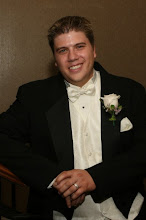For my third blog entry I thought I would discuss the importance of teacher planning in education. As I was reading the chapters in the book for this week I noticed that one of the sections was devoted to idea of planning. This one aspect of teaching is essentially the most important part of a teacher’s job because it will set the ground work for what is going to be taught to the students. A teacher may have mastered the subject area in which they teach, but without a well thought out lesson plan the students will not learn as well as they could have with a well constructed one. Lesson plans need to include many different elements that speak to different types of learners. The linguistic learner will need something to read, while the spatial learner needs something to visualize. Only by taking into consideration all different types of learning styles can a lesson reach all learners.
There is no right way to plan, due to the fact, that planning means different things to different teachers. Some teachers write out detailed lesson plans with each step written out, while other teachers are able to write the minimal amount. As long as planning is taking place both planning methods can prove to be effective.
The book lays out seven main principals that teachers need to keep in mind when they are planning and they include: student, content, time, school, resources, teacher knowledge, and technical considerations. Children are the reason why there is even a profession of teaching in the first place. First and foremost, teachers need to keep in the mind their students when they plan. Teachers need to ask themselves what they want their students to learn, and how to most effectively go about teaching it. Content needs to be addressed in the lessons by having a clear order and methods that compose the lesson. Teachers also need to consider how long it will take to teach a unit, and if school functions such as field trips or holidays will interfere with the completion of it. A well planned teacher needs to take into consideration any district or state standards that need to be addressed. They also need to determine if any additional resources such as text book or technological aids are needed to complete the lesson. Finally, an educator needs to determine how knowledgeable they are on a subject they plan to teach, and if they need to review certain aspects of the lesson in order to effectively portray the information to the students. Finally, I would like to share the planning methods I use when I plan for my elementary music lessons. After establishing the topic for the class, I sit down and write a lesson plan consisting of objectives, procedures, and materials. I closely following the curriculum guide provided by the county in which I work that incorporates the state and national standards of music. Then I ask the question: What do I want my students to learn as a result of the lesson? Once this question is answered, I draw from a variety of materials for my lessons, including the student’s text book and references on the three major methodologies of music: Orff, Dalcroze and Kodaly. It is important to include something in the lesson that the students will find fun, such as a musical game or instrument playing. I find that children love doing these types of activities and learn more as a result of doing them. I also include activities that illustrate the different levels of learning. Knowing what a major scale is and being able to play one are two different things. I try to find a balance so I am not concentrating on one aspect of the material.
Planning can be the most challenging aspect of teaching. A well thought out lesson can teach students, but an entire units worth can inspire them.
Wednesday, June 10, 2009
Subscribe to:
Post Comments (Atom)


Lesson planning must take place before instruction for it to be very effective. One aspect of lesson planning entails carefully preparing the instructional content to communicate to your students during a period. There are long term and short term lesson planning. In lesson planning a variety of techniques are used. When planning put in mind about, lesson objectives, teach and model behavior, use active students engagement strategies and move around the room., praise and questioning. First, you need to think carefully about what the lesson is supposed to accomplish. Also, know that you need to reach out to all your students, so you need a differentiated lesson plan. Also after instructions, check what worked and how your lesson plan can be modernized.
ReplyDelete